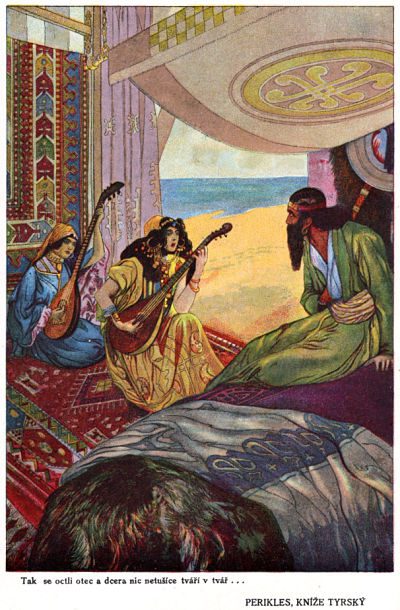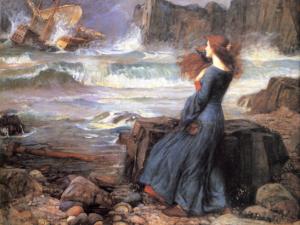 Disney created a clever world for the film Zootopia where non-human animals have learned to live in imperfect harmony. This has happened because the “predators” have ceased to kill and become like “the prey.” This is the first Disney film that is as funny, well animated, and voiced as the worst of the Pixar films . . . and that is high praise. Just don’t think too much about the movie.
Disney created a clever world for the film Zootopia where non-human animals have learned to live in imperfect harmony. This has happened because the “predators” have ceased to kill and become like “the prey.” This is the first Disney film that is as funny, well animated, and voiced as the worst of the Pixar films . . . and that is high praise. Just don’t think too much about the movie.
And there is the problem with the film. Don’t get me wrong. It is laugh out loud funny and has many redeeming social messages that almost reach the point of tedium, though not quite. Assuming you do not think about the fantasy world at all, then the film makes sense. Don’t ask: Why does the leonine mayor go to jail for breaking the law for the good of the city while our heroes work with the mob, break and enter, and ignore the idea of search warrants to become heroes? The movie certainly will not tell.
Can a young fox actually become an elephant? Why is the predator lifestyle wrong and suppressed? Why haven’t any bunnies been cops when there are small and medium size animals? We know that there are tiny cops for tiny animals in a throw away line of the movie. How do animals from one ecological zone move into the other zones without massive technological help?
Of course, I kept myself from asking any questions during the film because I just wanted to have fun and so I did. The difference between a brilliant fantasy world (try The Incredibles) is in the after-thoughts: Zootopia leaves a disappointing mental taste. You can think about the world portrayed in The Incredibles and it (generally) holds up, but Zootopia leaves the tang of anti-intellectuals writing pleasant agitprop.
It made a great deal of money (as it should have), but a classic it is not.
One would not even think about the movie if it did not contain message after message ranging from the blandly moralistic to assaults on reason. Unless we are just to accept every Movie Message as true, we must think about them . . . and the movie does not handle thought well. For example, extrapolating from available evidence is . . .if the movie is to be believed. . . wrong if the conclusions are socially undesirable. This is an invitation to end thinking about social problems outside of socially acceptable boxes . . . and that strikes one as dangerous.
Socrates would have loved puncturing the pious platitudes of the animal city. Perhaps, a bobcat as his animal avatar?
Zootopia imagines a world where nothing is as it really is and then invites us to live in it. Do not become friends with a fox if you are a bunny. Really. The animals aren’t shown as having achieved perfection, but have gotten close by living the dream. If life were but a dream, this might work, but it isn’t even when rowing a boat.
By contrast, Shakespeare and a collaborator (perhaps) give us a fantasy world in Pericles, Prince of Tyre that is equally moralistic, but with the opposite message. Life is tough and the only sure path is living by an external moral code and being tough enough to deny your feelings for years. We don’t have a perfect manuscript of the play and it is more uneven than Shakespeare’s best work, but the fantasy “classical” world he creates demands thought.
Recall that Shakespeare wrote for a popular audience just like Zootopia.
Pericles is a man of many sorrows and has the worst luck with ships of any character this side of Odysseus or Charles Lightoller. He strives to be a good ruler, a just man, and a moral man. When his dreams say “love” and morality gives warning, Pericles says:
But I must tell you, now my thoughts revolt
For he’s no man on whom perfections wait
That, knowing sin within, will touch the gate.
You are a fair viol, and your sense the strings;
Who, finger’d to make man his lawful music,
Would draw heaven down, and all the gods, to hearken:
But being play’d upon before your time,
Hell only danceth at so harsh a chime.
You cannot imagine Pericles cutting a deal with a mob boss to win like the “heroes” of Zootopia.
All the “good people” in Pericles suffer and this suffering produces one of the most moving reunion scenes in all of literature . . .surpassed only by The Winter’s Tale. Follow your heart in Pericles and the results are not good . No love is safe from excess and chastity is held up as a saving, powerful virtue. Chastity is not merely saying no to desire, but saying yes to the hard, moral way.
We can’t become anything we wish in Pericles, that way lies decadence punished by divine fire, but we can become more good, normal, just, and heroic. In fact, the “miracle” in the play partly depends on science and learning hitched to charity. Can we all get along? No. The world contains panders and bawds and this play portrays them as sickening and evil. Like the incestuous couple early in the play . . . immorality no longer shocks after a time, but still brings decay.
The gods work slowly, but morality always wins.
Or so the world Shakespeare created in Pericles contends. Of course, if you think about it, things are more complex. Justice sometimes waits for the next life. Deliverance from the bawd or the pander may not come in ways we would prefer. Life can be even harder than that of Pericles and the solution even further away.
A good fantasy world does not bend reality (say physics) so much that the world is no longer plausible. Moral facts are as important as physical facts and Zootopia is as careless with morality as it is with physics. Pericles has anachronisms and exists in no historic time . . . sort of classical world mashed up with Jacobean world and yet it gets moral reality just right.
The moral is as bluntly stated as a Marvel movie:
In Antiochus and his daughter you have heard
Of monstrous lust the due and just reward:
In Pericles, his queen and daughter, seen,
Although assail’d with fortune fierce and keen, 2625
Virtue preserved from fell destruction’s blast,
Led on by heaven, and crown’d with joy at last:
In Helicanus may you well descry
A figure of truth, of faith, of loyalty:
In reverend Cerimon there well appears 2630
The worth that learned charity aye wears:
For wicked Cleon and his wife, when fame
Had spread their cursed deed, and honour’d name
Of Pericles, to rage the city turn,
That him and his they in his palace burn; 2635
The gods for murder seemed so content
To punish them; although not done, but meant.
So, on your patience evermore attending,
New joy wait on you! Here our play has ending.
and this moral seems truer than “you be what you want, mostly, no internal or external force should check your dream.” In fact, the message of Pericles seems much more like The Incredibles. There is no doubt that Shakespeare, if alive today, would work for Pixar and be disgusted by Cars II.
Just saying.
———————————————————-
William Shakespeare went to God four hundred years ago. To recollect his death, I am writing a personal reflection on a few of his plays. The Winter’s Tale started things off, followed by As You Like It. Romeo and Juliet still matter, Lady Macbeth rebukes the lust for power, and Henry V is a hero. Richard II shows us not to presume on the grace of God or rebel against authority too easily. Coriolanus reminds us that our leaders need integrity and humility. Our life can be joyful if we realize that it is, at best, A Comedy of Errors. Hamlet needs to know himself better and talks to himself less. He is stuck with himself so he had better make his peace with God quickly and should stay far away from Ophelia. Shakespeare gets something wrong in Merchant of Venice . . . though not as badly as some in the English Labour Party or in my Twitter feed. Love if blind, but intellectualism is blind and impotent in Love’s Labours Lost. Brutus kills Caesar, but is overshadowed by him in Julius Caesar. We should learn not to make Much Ado about Nothing. We might all be Antony, but if we would avoid his fate then we must avoid flattery and the superficial love of Troilus and Cressida. We are fools, but our goal should be to accept it and not to degenerate into Biblical fools during our Midsummer Night’s Dream. Richard III is a symptom of a bad leadership community, but be careful that use Measure for Measure to guide your reaction to the mess. The modern university is Iago in Othello playing on our sins to destroy the nation. You can’t accumulate your way to a great leader and personal piety in Henry VI (Part I) is not enough to make a great king. God will save the King, not our stupid partisan squabbles seen in Henry VI (Part 2) and not kingmakers as existed in Henry VI (Part 3). Fortunately, in God’s world All’s Well That Ends Well. Two Gentlemen remind me that being in love is grand. King John keeps winning and so loses. Slander always gives way to truth in Cymbeline. We need patrons, but God help us if we flatter them and lose them as Athens did with Timon of Athens. We need good leaders and not have to hope against reason that one turns out well like young Prince Hal in Henry IV Part One. Being powerful is all fun and games, until it isn’t as Henry learns in Henry IV Part Two. Virtue can be jolly and edgy, as The Merry Wives of Windsor show. We can all be shrews and need The Taming of the Shrew. Pericles did not live in a Zootopia, his world was more realistic.















